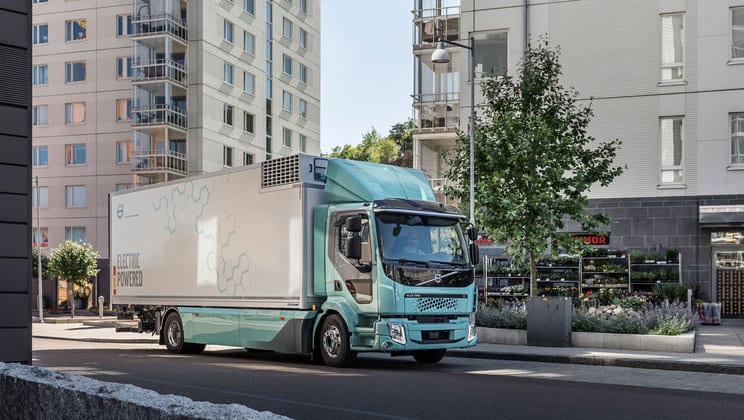Volvo Trucks has announced the start of sales of its Volvo FL and Volvo FE electric trucks in selected markets within Europe, meeting the rising demand for sustainable transport solutions in city areas.
Both the FL Electric and FE Electric trucks have been developed for distribution, refuse handling and other urban transport applications.
The FL Electric has capacity for a GVW (gross vehicle weight) of 16 tonnes, while the GVW of the FE Electric is 27 tonnes.
Sales will start in Sweden, Norway, Germany, Switzerland, France and the Netherlands, with the start of serial production planned for March 2020.
According to Volvo Trucks, the vehicles’ reduced noise levels makes it possible to carry out deliveries and refuse collection in early mornings, late evenings and at night, and thus helps to improve transport logistics and reduce congestion during peak hours.
Also, with “better air quality and less noise”, Volvo Trucks claim the electric trucks “create new opportunities for city planning and road infrastructure”. For example, an electric truck could be used in indoor loading areas and environmental zones.

“Global urbanisation requires urban logistics and truck transport with zero emissions and less noise with increasing urgency,” said Jonas Odermalm, vice president, product line electromobility, Volvo Trucks. “With the Volvo FL Electric and Volvo FE Electric we are able to meet both the strong environmental demands as well as the high commercial requirements of our customers.”
Odermalm added that both vehicles maximise payload while optimising driving range. “Volvo Trucks’ solutions will be based on individual business needs that consider a number of parameters, such as driving cycles, load capacity and route analysis, to use the battery capacity in the most efficient way possible,” said Odermalm, before adding that customer feedback has been very positive.
“While customer feedback has been positive, we do recognise that charging infrastructure is still under development in most cities and we are working alongside both public and private partners to agree on a long-term strategy for the expansion of charging infrastructure,” said Odermalm. “But it’s clear that the pace of development of charging infrastructure needs to increase.”





